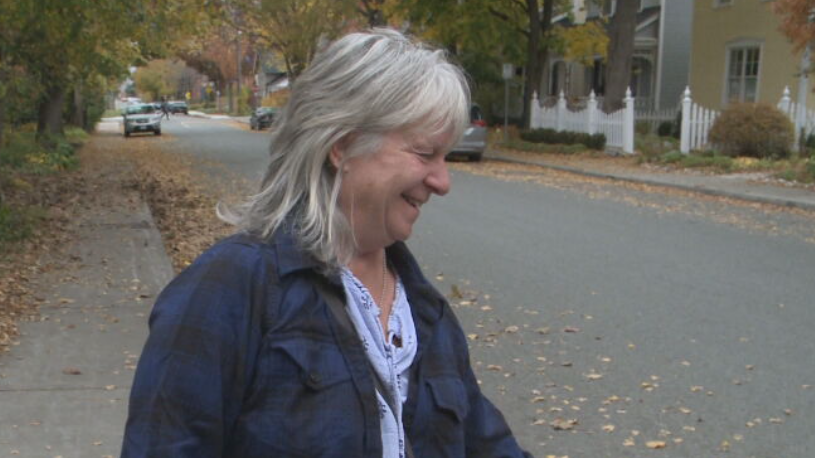The Bank of Canada has slashed its key lending rate for a fourth consecutive time, dropping the rate by 50 basis points from 4.25 per cent to 3.75 per cent.
The decision comes after data from Statistics Canada highlighted inflation dipped from 2.7 per cent in August to 1.6 per cent in September.
“We took a bigger step today because inflation is now back to the 2 per cent target and we want to keep it close to the target,” Governor of the Bank of Canada Tiff Macklem said in a statement.
In Ottawa, homeowners with a variable rate mortgage, like Christine Hanson, say the news comes after what has been a difficult financial year.
“I started off with a mortgage a couple years ago and I thought for the first time, ‘I’ll do a variable rate’ and shortly thereafter, interest rates started to creep up,” said Hanson.
“My mortgage has gone up probably $800 [per month] in the last couple years. From $900 to $1,700. It’s been brutal.”
Wednesday’s rate cut translates to nearly $30 in savings per $100,000 on a variable rate mortgage.
For Hanson, any money saved is a step in the right direction.
“It’s going to allow me to buy a bit more food or not have to dip into my savings to live, as much, but we’re not anywhere close to what I need to do to live,” she said.
“I’m on a fixed income. I’m retired. I had just retired at the same time [of buying a home] too. It’s been really tough.”
 Christine Hanson has a variable rate mortgage and says the Bank of Canada’s rate cut on Oct. 23, 2024 will save her some money. (Brad Quinn/CTV News Ottawa)
Christine Hanson has a variable rate mortgage and says the Bank of Canada’s rate cut on Oct. 23, 2024 will save her some money. (Brad Quinn/CTV News Ottawa)
Some economists are predicting more interest rate cuts in the months ahead.
“We do think we’re going to see 25 basis points moves until we get the Bank of Canada’s policy rate to 2.75 per cent,” said Dawn Desjardins, Chief Economist at Deloitte Canada.
“If the economy does not respond to these moves, we could see the Bank of Canada put their interest rate even lower. But, at this stage, based on how we think the economy is going to evolve, we think that the policy rate will be at 2.75 per cent in the second quarter of 2025.”
For now, one realtor says some people looking to enter the housing market in Ottawa seem to be sitting on the sidelines, waiting for interest rates to bottom out.
“That’s kind of the counterintuitive thing that’s happening right now. People have been saying ‘I’m going to wait until rates come down.’ Well, now that rates are coming down, they feel they should wait even longer because they are continuing to come down,” said Bill Meyer who leads the Tulip Team at RE/MAX.
“So, it really hasn’t helped. The last few cuts haven’t really sparked the first-time home buyers to jump into the market in big numbers.”
The central bank’s decision to slash rates by 50 basis points is the largest cut since March 4, 2020, when concerns over the economic impact of the COVID-19 pandemic were ramping up.
“It is significant. If you’re looking at a $500,000 mortgage, your monthly payment is going to be about $150 cheaper. But it’s not a big deal for a lot of people, so I don’t think it’s going to change [the market] drastically,” said Meyer.
“If you asked me a year ago when we started to see interest coming down, the feeling in the industry was because rates are coming down by a quarter of a per cent, people are going to jump into the market now. That didn’t happen for the last few cuts, so I don’t think it’s going to really happen now.”
According to data from the Ottawa Real Estate Board and the Canadian Real Estate Association, homes of all kinds in Ottawa sold for an average price of $685,551 in September 2024 – a rise of just 1.5 per cent compared to a year prior.
Single family homes sold for an average of $824,498. A moderate increase of 0.6 per cent.
“Inventory is creeping up. Each month, for the last number of months, we’ve seen inventory increase so I think we’re going to maintain that for the balance of the year,” said Meyer.